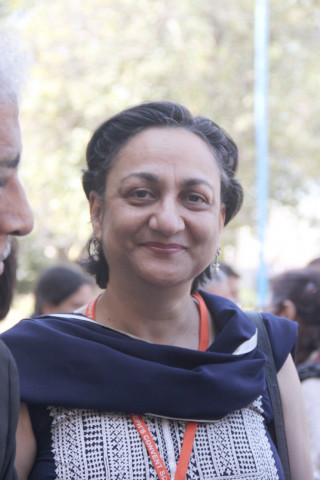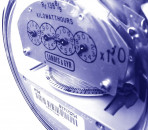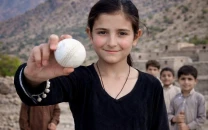Meet one of Pakistan's fiercest feminists
Simi Kamal talks about women's rights, financial independence and the 'saas bahu' equation

Let's see what this woman of substance has to say about the condition of women's rights in Pakistan. PHOTO: AYESHA MIR/EXPRESS
Q. How did you get into this line of work?
A. I come from a family where people do a lot of voluntary work and activism in all kinds of areas. Even when I was a child, I used to get involved in social causes, and during the war 1971 war, I was knitting for our soldiers and writing letters to prisoners of wars, and so on. As a student, I got involved in a number of causes. From a young age, I began to notice discrimination in the way women are treated in society; so, I became part of the first group for women called Tehrik-e-Niswan, which came out around the 80s when the women’s movement was coming up. Later, I became a member of Women Action Forum. I am also a geographer; so, I work in the water environment sector as well.
Women’s day: Govt pledges to protect women’s rights
Q. What drives you to continue working for the cause?
A. I saw the way women were treated in society; I saw the way they were treated on the streets and how they were talked about - and the kind of words and language that was used. Not just in our culture, but also across the world, and it made me angry.
Q. Who has had the most impact on your life?
A. While I was studying at Cambridge, I was very influenced by some of the women writers because I used to read prolifically, and also some of the icons of the women’s movement in those days such as Germaine Greer, Gloria Steinem and Bella Azbug who formed the Women’s Environment and Development Organization. And, of course, all the women in Pakistan and India because being in England all those years also meant exposure to a lot of Indians, whom we would not meet in Pakistan. So, a lot of Indian women, such as Vandhana Shiva, Palestinian and Middle Eastern women, and a lot of women from my mother’s generation who really fought to get out of the burqa in the Muslim world.
Q. Did your divorce help you relate better to the issues women face in Pakistan?
A. Yes, I can feel their pain a lot more especially those who are not in the position to change their lives, and this is not just women who are not well-off. I have friends who are very well off and they don’t need to be dependent on their husbands but they still are very afraid because they don’t know how society will take it.
It’s still tough living as a single woman in Pakistani society. When I was getting married, I insisted that I had to have equal rights in the Nikah Nama, and of all the many reform laws in Pakistan, I think that Nikah Nama is one of the best reform laws because a women can have an equal marriage. We had a very equal marriage; we put in equal custody and equal rights of divorce; so, when my former husband became an alcoholic and his very erratic behavior meant that I didn’t want to stay with him anymore, I could walk out very easily and it was not traumatic because it was all written and we didn’t have to go to court or anything.
One of the biggest issues we have is when women need to go out of shelters and live on their own; nobody will rent them a place. Where do they go? I also realised through my own experience of marriage that here in Pakistani society, you don’t marry one person, you marry his entire family and then it is expected of the women to develop a relationship with each person and keep everyone happy. This a peculiar South Asian phenomenon; it is not prevalent in the Arab world or any other parts of the world. But I also noticed that there’s a lot of sisterhood in our part of the world even in families connected by marriages. For instance, if there are three brothers and they have three wives, those three wives will support each other -- they will help each other out, support, look after the kids and all. I mean in larger families, a lot of women are able to work because they have a family to support them, but yes, my experience has made me much more empathetic to those women who don’t have a way out. I had a way out but most women don’t.
Gender balance: Role of women in decision-making urged
Q. What has been your biggest achievement, one you are most proud of?
A. I think it’s what I have been able to do -- intellectual contribution to the whole debate on women’s rights in Pakistan. I think that’s one of my biggest achievements because I am a writer, researcher and I speak a lot. Also, being able to get to the heart of the problem and helping people there -- the poverty, the disenfranchisement, the feeling of being nobody that a lot of our women feel and that is what they are made to feel, helping change that. I am very proud and happy to have done that, and I think there is a lot more to be done. Otherwise, in my private sphere, I have brought my children up in a very different way, keeping my daughter and my sons absolutely equal. I have also helped numerous girls establish careers, perhaps hundreds of them. I’m very happy to be able to help young women feel confident and get them on track so they can be economically independent. I think one of the other things that I’m really proud of is to be able to speak out in society. I’m a great believer in secularism and I believe religion and state should be completely separate and I believe that both men and women as adults should be able to decide what kind of life they want to lead and they should be free to do so.
Q. Do you think women play a role in not letting women prosper?
A. In order to tackle patriarchy and break the mindset, we also need to change the mindset of women who think that they are not able to do anything and think they are okay at home and that that is their place and this is how they should be.
Q. What do you have to say about the saas bahu relationship where the abused becomes the abuser?
A. You see, it is a triangle, and triangles never work in any kind of relationship and this is a very typical triangle. Women in our society are taught that the husband is the Majazi Khuda (God on earth) and the man is taught that heaven lies under the feet of his mother. A boy is taught since childhood that the most important woman in his life is his mother and the girl is taught that the most important person in your life is your husband; so, we have a disconnect right there. In order to overcome this, there would have to be a whole generation of women who would not behave like saases when they actually become a saas and break this circle which goes around. I think what I’ve taught my children is that looking after your parents is your responsibility, not that of your spouse. I think if you understand that, you know you don’t marry a woman so she can look after your parents -- which is the larger thinking that you bring in a bahu so she can become a slave in the house -- that is so ridiculous, but that is changing, it is settling down quite a lot.
‘Women’s rights tied to electoral politics’
Q. Do you consider yourself a feminist?
A. Absolutely.
Q. And what is your definition of that?
A. A feminist is somebody who believes in equal rights of men and women and who believes that everything that needs to be done in order to come to those equal rights has to be done, and they work towards that whether it’s political or social.
Q. The women rights movement has achieved many milestones, such as right to vote. Now what?
A. We want everything else. A lot of women believe, or perhaps it suits a lot of men that women believe that being liberated means having the freedom to dress as you like, to appear on television, to drink and smoke and to have a great social life, that is women’s empowerment, but it doesn’t stop there and it shouldn’t stop there. We have this situation where women wear strapless, backless clothes and they are out dancing and drinking and smoking, but they cannot buy and sell their property even if they have any; they do not have the right to divorce; they don’t know anything about how much their husbands earn and how they spend it; they don’t have their own bank accounts; they cannot get up and go to work because their husbands do not allow them to; they cannot meet certain people because their mother-in-law or father-in-law won’t allow them -- but they think they are liberated and the kind of societies they move in, the men in that society also tell them that this is liberation and that’s it. It suits men to have women think like that and have themselves think in that way. When we talk about the third wave of feminism, we talk about women owning assets so that they have control over their incomes. The real indicators of women’s empowerment are sometimes hidden behind clippings of what is considered modernism. There are a lot of young women who think that being modern means doing these things and they are not really thinking about what may be called real emancipation -- being in charge of their own destiny in terms of where they live, where they work, who they associate with, who they go out with, who are their friends, and so on.
Human Rights Day: ‘Men can help end gender violence’
Q. If you had one wish this International Women’s Day, what would it be?
A. To have all anti-women laws repealed in Pakistan, that’s what I would like to see happening. Because once these laws go, women will have a different space in Pakistan. After that, I would like women opening bank accounts, setting up businesses and reclaiming public spaces.
Q. What advice would you like to give to women in Pakistan?
A. Live your dream. Don’t put it aside and say 'I can’t do it'. Live your dream.



















COMMENTS
Comments are moderated and generally will be posted if they are on-topic and not abusive.
For more information, please see our Comments FAQ